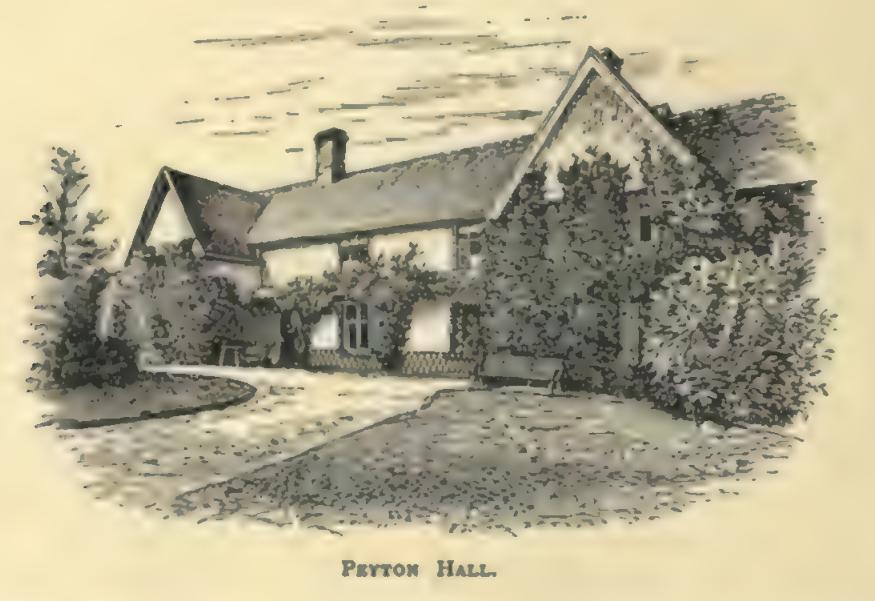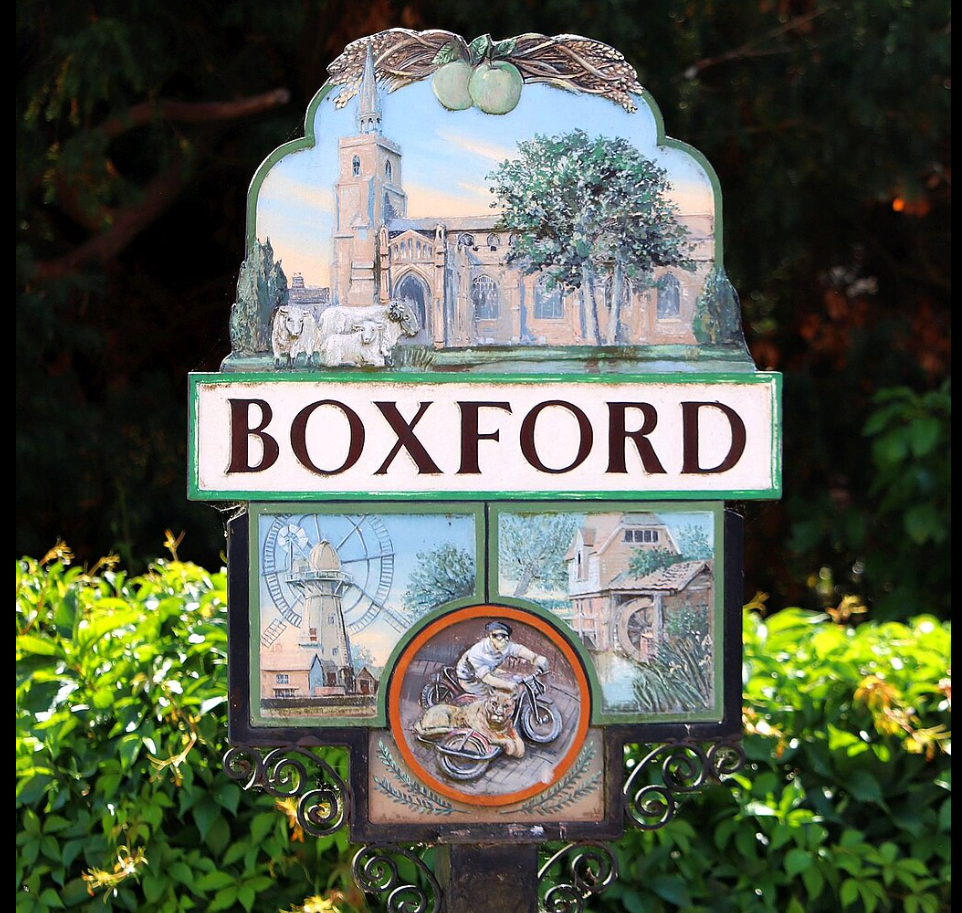Boxford, Suffolk
Boxford is a village North of the 1071 between Sudbury and Hadleigh, Suffolk.
Background to page
This page is a work-in-progress - Historical information is being transcribed from "
The Manors of Suffolk" - W. A. Copinger - 1905
The transcription of Copinger's work is time-consuming and maynot be complete on this page. For a complete
text please visit the copy I found on the Internet Archive.
BOXFORD MANOR.
much is known respecting this manor. Godfrey de
Bellomonte had free warren here in 1275,' but it is uncertain if he
had a manor. The Abbot of St. Edmunds
presented to the living in 1316 and not unlikely had the
manorial rights. The manor is mentioned in the
Inquisition post mortem of Sir Richard Corbet who died
the 25 June 1524, and it then passed to Richard Corbet his
son and heir.* We find, however, that shortly afterwards, namely, in
1553, it was granted by the Crown to William Lord Howard. In 1764
it was in the King.
Top
PEYTON HALL.
Peyton Hall belonged at the time of the Norman Survey to William Malet
and passed to his younger brother Walter lord of Sibton. He was succeeded
by Reginald Fitz Walter his 2nd son, who was living in 1135 and appears
to have assumed the name of Peyton. He held both Peyton Hall in Boxford and Peyton Hall in Ramsholt of Hugh de Bigod and was server
to Hugh Bigod and Roger Bigod Earl of Suffolk. William de Peyton his
eldest son held lands in Boxford, and King Stephen granted to John de
Peyton brother of this William all his lands in Peyton to hold as his ancestors
before held the same.

John de Peyton had 4 sons John the elder, Robert, Peter and John
the younger. Robert was Lord Justice of Ireland in the time of Hen. III.
and being Lord of Ufford assumed his surname from that place. His son
Robert de Ufford was created Earl of Suffolk in 1336, and installed a Knight
of the Garter. One of the brothers of the Earl was the unfortunate John
Ufford of whom Weever tells us he was brought up at Cambridge and
made doctor of law, " promoted first to the deanery of Lincoln, then to the
Chancellorship of England and lastly to the Archbishopric of Canterbury
which he never enjoyed, being cut off by the plague (which consumed nine
parts of the men in England) before he received either his pall or consecra

